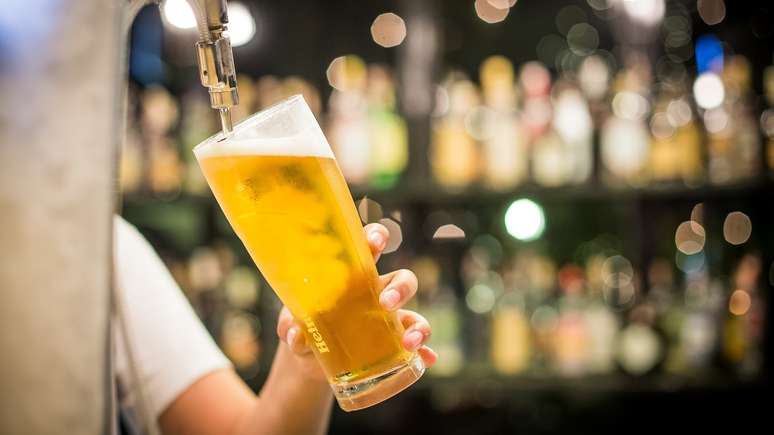In addition to cirrhosis and addiction, excessive drinking leads to anything from irritability to reckless courage
html[data-range=”xlarge”] figure image img.img-0b0cadd865b0c9a720facf435df1c02ep8mlqt2k { width: 774px; height: 435px; }HTML[data-range=”large”] figure image img.img-0b0cadd865b0c9a720facf435df1c02ep8mlqt2k { width: 548px; height: 308px; }HTML[data-range=”small”] figure image img.img-0b0cadd865b0c9a720facf435df1c02ep8mlqt2k, html[data-range=”medium”] figure image img.img-0b0cadd865b0c9a720facf435df1c02ep8mlqt2k { width: 564px; height: 317px; }
Excess alcohol can lead to a number of diseases in people, such as cirrhosis and addiction. But there are also short-term, immediate problems with drinking alcohol.
Some examples are decreased reflexes, changes in vision and cognitive abilities. When consumption is continually excessive, it also causes irritability.
“The liver is primarily responsible for handling the alcohol toxin, which is super dangerous. This toxin is called acetaldehyde and is terrible for the brain,” explains nutritionist Patrícia Lara, specialist in oxidology and cellular biochemistry, with specialization in biomolecular, medicine regenerative and anti-aging.
“When the body deals with acetaldehyde too constantly, the brain goes into an inflammatory process. It then develops two more complicated symptoms: aggression and reckless ‘courage’, a loss of sense of right and wrong in decision-making processes.” “.
It’s this combination of impaired reflexes, increased irritability, and recklessness that explains, for example, why alcohol and driving shouldn’t mix. Patrícia is adamant that “under no circumstances” will the body be able to drive after drinking.
In the medium term, alcohol also causes damage. As nutritionist Felipe França also explains, when the drink is absorbed from the gastrointestinal tract and enters the bloodstream, the brain is the first organ affected. “Alcohol is a substance that depresses the central nervous system and, therefore, can affect brain function even in moderate doses,” warns the specialist in Oxidology and Cellular Biochemistry.
How to drink in a balanced way?
Just as it is known that alcohol is not good for you, everyone knows that drinking is present in the homes and in the life of the Brazilian population in general. So, if you’re going to drink, follow the advice of nutritionist Patrícia.
- Feed well!
Eat a clean carbohydrate, high-fiber meal before drinking. This will slow the absorption of alcohol to at least a quarter of its strength.
- Hydrate!
With each drink, drink a glass of water. It’s also worth boosting this hydration with a homemade serum. The expert recommends mixing the liquid with coconut water to drink after the event is over.
serious consequence
When these suggestions are ignored and the individual abuses alcohol intake, serious harm can be the development of cirrhosis, a type of liver damage. With disease, the organ’s healthy cells die and the organ ceases to perform its functions, such as producing bile, maintaining blood sugar levels, and metabolizing cholesterol.
In these cases, treatment includes measures such as stopping alcohol consumption, eating a healthy diet, and maintaining weight. Patients with more serious conditions may still need a liver transplant.
Source: Terra
Ben Stock is a lifestyle journalist and author at Gossipify. He writes about topics such as health, wellness, travel, food and home decor. He provides practical advice and inspiration to improve well-being, keeps readers up to date with latest lifestyle news and trends, known for his engaging writing style, in-depth analysis and unique perspectives.








